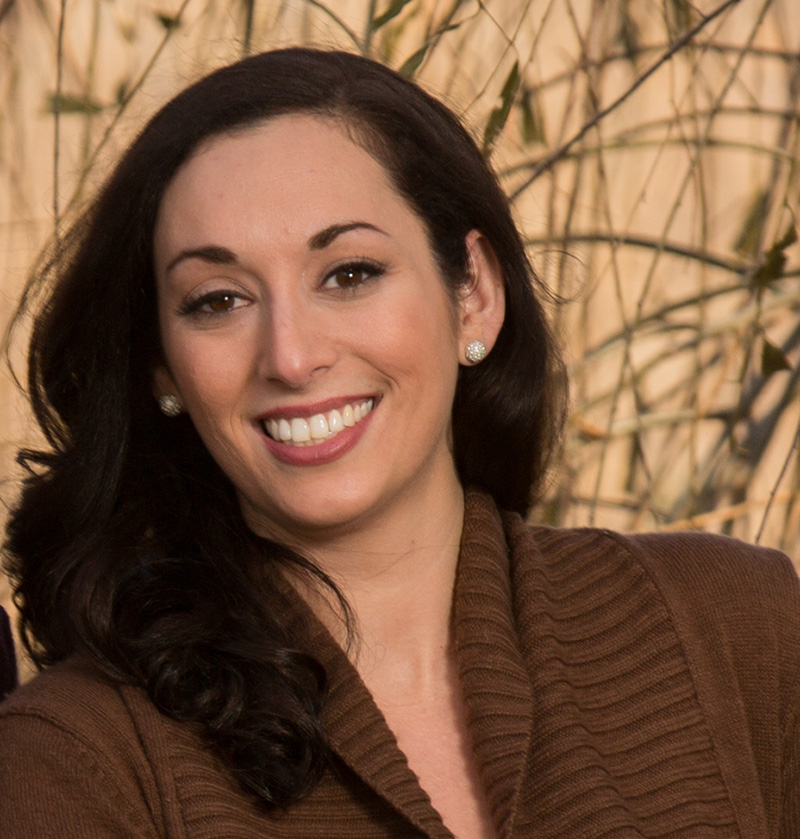Sasone, a community-wide program that provides support for Jewish children with special needs, has named a new director. Lindsey Lipsky has taken over the role from Perry Hilvitz, who served in the position for 13 years.
Sasone, which is the Hebrew word for “joy,” was founded in 1995 by Steve and Sandy Passer, along with Alan Edelman. The program has served hundreds of children since its inception, and currently serves approximately 175 school-age children identified with developmental, physical, mental or behavioral issues in the Kansas City metro area.
Sasone, which operates under the umbrella of Jewish Federation of Greater Kansas City, works to ensure children with special needs can attend Jewish preschools, religious and Hebrew schools, Hyman Brand Hebrew Academy, and area Jewish summer camps.
Lipsky has been with Sasone since 2015 as a consultant, working with families and schools to help support kids that have different needs and making sure they have inclusive environments. She has a 17-year background as a special educator, teacher trainer, instructional coach and nonprofit management leader.
“Lindsey brings fresh energy and the experience of someone who’s worked in the program for several years,” said Andi Milens, Federation’s senior director of community building, who oversees the program. “We’re very excited to see where she takes it.”
Lipsky said her immediate focus as Sasone director is meeting with community members and finding out what is needed to best support special needs in the classroom, hearing from education directors on what they need, providing training and resources for them, and providing support for families.
“Right now, it’s asking a lot of questions and finding where the need is and helping support programs that currently utilize Sasone funds,” she said.

Sasone funds used to be dispersed to schools as reimbursement for consultants and paraprofessionals. In 2019, the program moved to a block grant model, which means the schools participating in Sasone get the funding outright and can do with it whatever they need to best serve their school and the students, whether that’s hiring a consultant or para, or combination of the two, or paying for any training, equipment or supplies needed.
“The block grant model gives the schools the flexibility to respond best to the needs of the kids in their school,” Milens said. “What these kids need isn’t necessarily one size fits all.”
Sasone’s main goal is to provide a successful learning and social experience for kids with special needs in any day school, religious school or early childhood program in the Jewish community. This currently includes Beth Shalom’s Rose Family Early Childhood Education Center and Polsky Religious School, Hyman Brand Hebrew Academy, Beth Torah, the Jewish Community Center’s Childhood Development Center, J Camp, Barney Goodman Camp, Chabad, Torah Learning Center, B’nai Jehudah, and any other Jewish educational program in the Kansas City area that serves children with disabilities.
“That’s the vision, making sure we’re creating an inclusive and welcoming environment, whether that’s at The J, which they do an amazing job of, or at a small Jewish study session,” Lipsky said.
“Part of it is thinking about how we design spaces and how welcoming we are to people that have differences.”
Historically, the reason Sasone was created was to help kids with more severe disabilities or cognitive delays. These kids with “identified needs” often get early intervention and support because their needs are easily seen, but kids with less visible disabilities or learning difficulties, like ADHD or dyslexia (that can’t be outwardly seen), need support too. The intent, Lipsky said, is to change mindsets and to change the access available for these kids.
“While Sasone is essentially still for those that have more severe disabilities, we are for everyone that might face a barrier to access,” she said. “Now it’s moving the mindset to saying, ‘Let’s have access for neurodivergent people.’ We have ramps for kids and individuals that are in wheelchairs, we also need to have support and awareness in the community to help individuals who don’t have an outward disability.”
Another goal Lipsky has is to create more awareness about the program itself and what kind of support it can provide for students, families and educators. Lipsky said sometimes even the teachers using Sasone resources don’t realize they were funded by Sasone, or they don’t know what’s available to them.
“A lot of people don’t know about Sasone, or they think it’s just funding for paras. That’s what I get a lot,” she said. “They don’t know they can reach out to get training or get connected to organizations.”
Lipsky’s role as Sasone director is a part-time position; she says her full-time job is taking care of her 18-month-old twins and four year old. However, there is a lot of overlap in both of her jobs as far as her mission is concerned.
“If I can make the world a better place for even one kid, then I’ve done my job,” she said. “I love this so much and I’m so passionate about it, so it doesn’t feel like work.”
Sasone is funded by Jewish Federation, Menorah Heritage Foundation, the Lowenstein Family Supporting Foundation, the Marion and Henry Bloch Family Foundation, The Sosland Foundation and philanthropic investment from generous community members.
If you’d like to make a contribution to the program, visit www.jewishkansascity.org.
By Lacey Storer,
Assistant Editor



